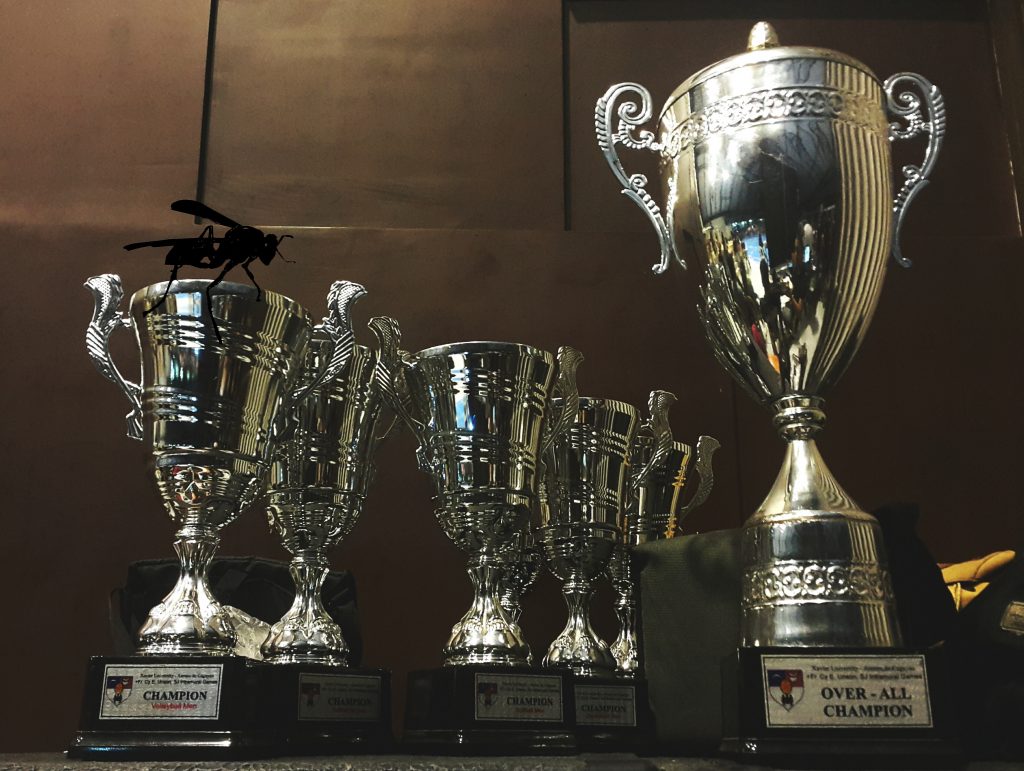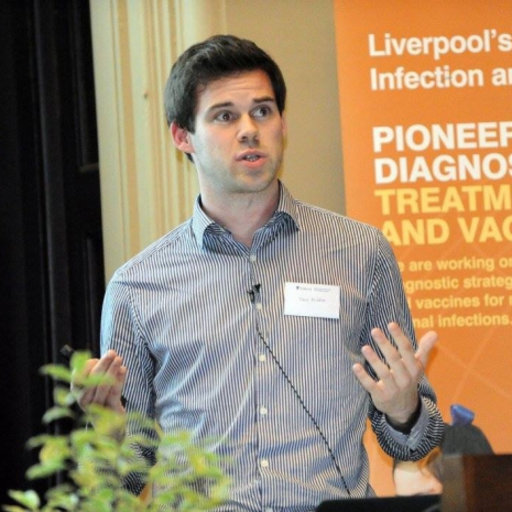Vectors of data awards: acknowledging the entire data sharing food web
We are pleased to see the 2022 Junior Research Parasite Award go to Jack Pilgrim for his work published last year in GigaScience, so here we highlight the ecosystem of awards acknowledging different parts of the research cycle.

Jokingly spurred by a controversial medical editorial calling people carrying out data re-use and meta-analyses “research parasites”, this gave rise to the launch of the “Research Parasite Awards” focused on data reuse to recognize and promote exemplar participants in this scientific ecosystem. We’ve been supporters and sponsors of the data awards since their launch in 2016, and eagerly await the announcement of the winners each January at the Pacific Symposium on Biocomputing in Hawaii. This currently consist of two awards: the first recognizes an outstanding contribution from a junior parasite (postdoctoral, graduate, or undergraduate trainee), and the second recognizes an individual for a sustained period of exemplary research parasitism.
This year was particularly satisfying to see the Junior Parasite Award go to Jack Pilgrim at Liverpool University for his work published last year in GigaScience (read the paper and blog). A remarkable study presenting a serendipitous finding from studying the entire the barcode of life database. While we can state we had no involvement in the judging, this is the first time the work in one of our papers has been rewarded. Although we are no strangers to prizes for data sharing (see the BMC Open Data Award winner Assemblathon2), and have also been awarded for our own efforts in data sharing (see our 2018 PROSE award for innovation in publishing) this is the first time we’ve had papers acknowledged for data reuse. As a journal focussed on open science we are big promoters of research parasites (and research on parasites), and try our best to feed them with open data and tools. As data producers are already recognised by the Research Symbiont Awards (last year’s winner COVID-19 hero Zhang Yongzhen also winner of the GigaScience Prize for Outstanding Data Sharing), then we as a data journal and amplifier of these efforts probably fit in this data sharing food web as a data vector.

To gain additional education insight from these exemplar data re-use case studies GigaScience has been offering the Junior Parasite Award winners an opportunity to publish commentaries talking about what lessons they have learned from carrying out their exemplary research. This publication hopefully being an additional and useful reward for winners who are all Early Career Researchers. Previous winner Claire Duvallet discussed the humility required in carrying out studies based on reuse of others data, and Ayush Raman covered the need to establish a baseline to avoid errors in secondary analyses. The latest commentary from 2021 winner Nicolás Nieto goes beyond a first perspective view to gives a wider (and team-based) overview on the relationship between research parasites and fairness in machine learning. AI and ethics being a particularly topical and contentious area, especially with a new Algorithmic Accountability Act just being proposed in the US Senate.
We asked Jack Pilgrim for his comments on winning this years award, and he has obliged with the following:
“I’m honoured to receive this year’s Junior Research Parasite Award. The study which has been acknowledged relating to identifying bacterial contaminants within the Barcoding of Life Database (BOLD) was an unexpected research direction for myself. As a qualified veterinarian, my PhD focussed on assessing the potential impacts of bacterial symbionts on the ability of biting insects to transmit viruses to animals. It was only through the serendipitous finding that genes from my main bacterium of study, Rickettsia, were being misclassified as a common molecular marker for taxonomic classification (DNA barcodes), that I had the opportunity to take on my first project analysing large secondary data sets.
With this in mind, I’d like to thank Alex Smith at the University of Guelph and collaborators at BOLD, who kindly granted access to DNA sequences and metadata which was not publicly available at the time. Without this open and collegiate attitude, this study would not have been possible in the first place. Our finding of >1000 bacterial sequences in BOLD not only unveiled Torix Rickettsia as a neglected component of insect biology but also demonstrated the value of ‘research parasitism’ and networking within science. Finally, I’d like to thank the Hurst lab where I spent 4 enjoyable years studying the ecology of insect microbiota. In particular, my friends Stefanos Siozios, Panupong Thongprem, Helen Davison and Greg Hurst who were all co-authors on the study.”
This year GigaScience also sponsored the other prizes, and congratulations are also due to 2022 Senior Research Parasite Awardee Murat Eren for his work re-using data at the intersection of computational biology and microbiology/microbiome research, as well as the honourable mentions for Kuoyan Cheng, Nishanth Ulhas Nair and Duran-Frigola. Please follow and support the awards as they continue to showcase and celebrate the importance of data sharing and reuse.
Further Reading
Park Y, Greene CS. A parasite’s perspective on data sharing. Gigascience. 2018 Nov 1;7(11):giy129. doi: 10.1093/gigascience/giy129.
Duvallet C. Data detectives, self-love, and humility: a research parasite’s perspective. Gigascience. 2020 Jan 1;9(1):giz148. doi: 10.1093/gigascience/giz148.
Raman AT. A research parasite’s perspective on establishing a baseline to avoid errors in secondary analyses. Gigascience. 2021 Mar 12;10(3):giab015. doi: 10.1093/gigascience/giab015.
Nieto N, Larrazabal A, Peterson V, Milone DH, Ferrante E. On the relationship between research parasites and fairness in machine learning: challenges and opportunities. Gigascience. 2021 Dec 20;10(12):giab086. doi: 10.1093/gigascience/giab086.
Pilgrim J, Thongprem P, Davison HR, Siozios S, Baylis M, Zakharov EV, Ratnasingham S, deWaard JR, Macadam CR, Smith MA, Hurst GDD. Torix Rickettsia are widespread in arthropods and reflect a neglected symbiosis. Gigascience. 2021 Mar 25;10(3):giab021. doi: 10.1093/gigascience/giab021.